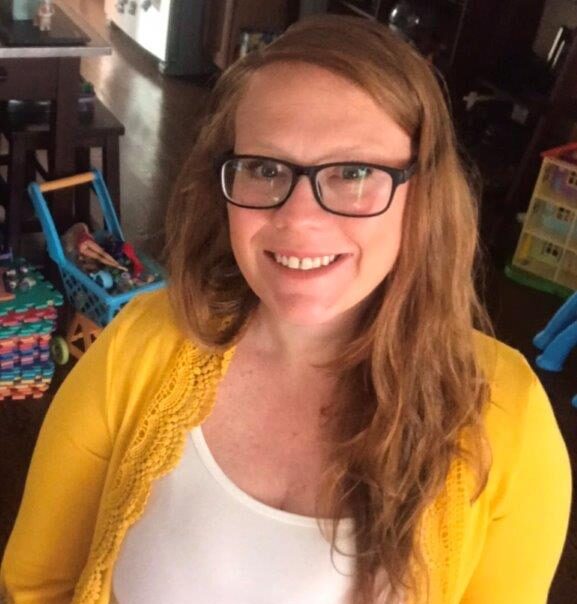Blog

COVID-19 Response: Finding Strength and Support in Uncertain Times
July 28, 2020In March, the Prince George supportive housing site in Manhattan was the first of CUCS’s programs to have a resident test positive for COVID-19. In the weeks and months after, Prince George staff and residents have worked tirelessly to maintain their close sense of community and help each other through all the unpredictable challenges that COVID-19 brought to New York City. We recently spoke with Samantha Breen, the Program Director, to learn more about the incredible ways her team came together to take care of each other, adapt their work to support hundreds of residents, and weather the ups and downs of being an essential worker during an unprecedented pandemic.
The Prince George was the first CUCS site to have a COVID positive case and, sadly, death. Can you tell me what it was like for your team in those early days?
It was intense, to say the least. We had just started talking as a site about how we may be impacted by COVID and then mere days later we had our first suspected positive case. Staff were coming to work with an immense amount of anticipatory anxiety. Aside from being novel and unpredictable, COVID is very personal, it doesn’t just affect work it affects our everyday lives. Staff were worrying about their health, their loved ones’ health and the health of their clients. We always knew we were essential but it becomes a totally different feeling when you are potentially risking your life and physical well-being to ensure our tenants are taken care of.
We have a really strong team at the Prince George. I always knew that, but COVID highlighted it. On March 20th we had our first COVID client death. In supportive housing, death is inevitable but losing someone due to COVID took us on an emotional roller coaster. Many were worried that this was going to become our new normal; an unfortunate trajectory for many of our tenants who had several COVID risk factors. It also made us realize that we might begin losing our own loved ones and become ill ourselves. The bravery demonstrated by staff, I truly can’t put into words. It makes you realize that this work is a calling. It’s intrinsic. It’s not about the money or the benefits or the esteem. It’s about showing up every day, during the best and the worst of times, to ensure that those most vulnerable, most isolated people in our community get the care, support, and love they need and deserve. When I think of heroes, I think of my team at the Prince George.
What is different now in how you help your clients?
We have had to drastically limit our face to face interactions to ensure that staff and tenants aren’t unnecessarily exposed to COVID while still ensuring that all of our deliverables were being met. We have had to implement creative engagement strategies working remotely. We increased the amount of remote client interactions to monitor clients’ physical health but also to be a source of social support during a very isolating pandemic. Community is huge at the Prince George. We have a robust tenant services department with various groups and daily activities. We cope by coming together to share a meal or listen to music but that in-person community connection had to stop for safety reasons.
How do you keep your team morale up during the pandemic, especially when they are not seeing each other daily?
When we began the remote rotation, each team had daily check-ins and check-outs. This allowed the space to troubleshoot issues, identify what procedures were working or not working. Most importantly it was a place where staff had the opportunity, as a group, to process all of the various emotions that were coming up; the fear, the grief, the uncertainty. We wanted staff to stay connected to their teams during a time of high emotionality and isolation.
What I love about the Prince George is that we function as one big team. Before COVID-19 all staff met once weekly and debriefed in person after any concerning incident. We check in with one another and take an interest in one another’s lives. We celebrate the good and have each other’s backs when things are tough. As the Program Director I wanted to ensure that that level of support was sustained despite the change in structure. I also wanted staff to feel confident that they were always being kept abreast of any new presumed or positive cases, if they had been exposed or if their tenants were exposed. I wanted staff to know that I was going to be honest and transparent with them always, even if at that time that meant fear was more induced.
What is the one thing you would want someone to know about CUCS and how they are helping New Yorkers during this pandemic?
On Friday March 13th, we had our first suspected COVID case. This was just a few days after we started thinking about how COVID might affect us. Aside from canceling meetings of more than four people, our workload remained the same. Within four days the agency was able to successfully have all the sites work on a remote schedule and had created policies and procedures that would help to ensure the safety and well-being of staff and clients. It felt like we were reinventing a pandemic wheel which was daunting, to say the least.
I was so thankful that I was working for an agency that was organized, policy and procedure-driven, and so quick acting. CUCS was always exemplary with regards to client care but this pandemic proved to me that staff well-being was equally as important.
